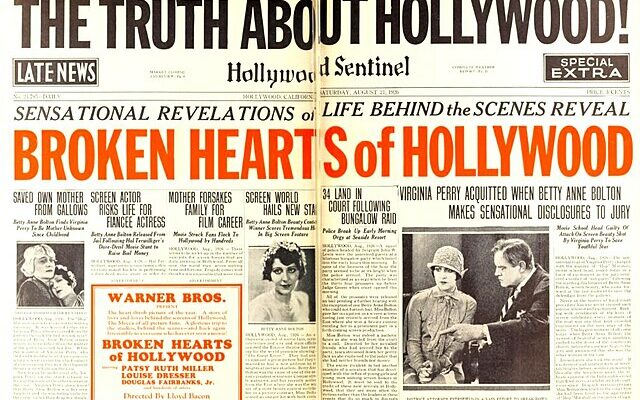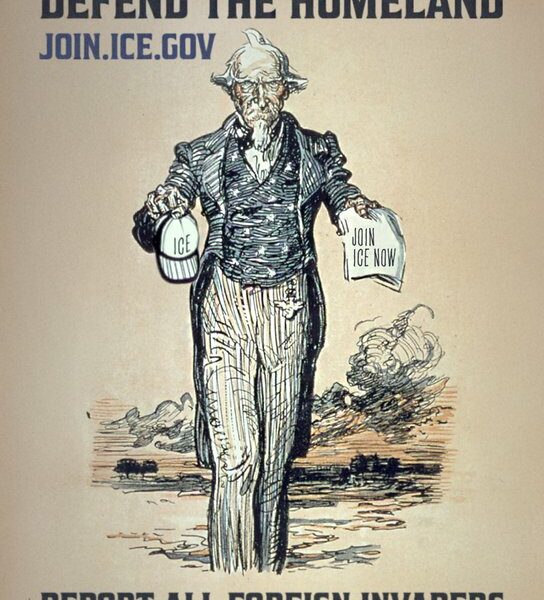
A Hollywood legend is saying that the writers and actors strike crippling the entertainment industry may change the way we watch films and shows forever.
Barry Diller became a Hollywood icon in the 1970s when he worked as chairman and CEO of Paramount Pictures, playing a significant role in the success of movies like “Saturday Night Fever” and “Raiders of the Lost Ark.” He later became the chairman and CEO of Fox, Inc., where he oversaw the launch of the Fox Network and the creation of hit shows such as “The Simpsons” and “Married… with Children.”
Diller also gained fame for his involvement in the creation of the USA Network and the expansion of the Home Shopping Network (HSN). He served as the chairman and CEO of HSN, as well as its parent company, HSN, Inc. Diller has been involved in various other ventures in the media industry, including the acquisition and development of online companies such as Expedia, Ticketmaster, and Match.com.
During a national interview on Sunday, he sounded worried about a forthcoming “catastrophe.”
Appearing on CBS’ Face the Nation Sunday, Diller — the head of the media conglomerate IAC, who previously served as CEO for Paramount and 20th Century Fox — weighed in on the state of the industry amid the SAG-AFTRA and Writers Guild of America strikes. Diller called the current challenges facing the industry a “perfect storm,” writes Mediate.
“You had Covid, which sent people home to watch streaming television and killed theaters,” Diller said. “You’ve had the results of huge investments in streaming which have produced all these losses for all these companies that are now kind of retrenching. So at this moment, it’s kind of a perfect storm.”
Diller called for a settlement deadline of September 1, and said there could be catastrophic ramifications if the strikes extend into the fall.
“Who cares about Hollywood?” Diller said — referencing what he believes to be overriding public sentiment on the issue. “Who cares about it? But the truth is, this is a huge business! Both domestically and for world exporters. … But these conditions will potentially produce an absolute collapse of an entire industry.”
The IAC chief acknowledged the “existential issues” at play, and said there is “no trust between the parties” — which could prolong the strikes.
Diller specifically addressed one of the biggest concerns raised by the writers: artificial intelligence. He called the fears “overhyped to death” in terms of the impact it will have on writers’ and screen actors’ jobs, noted CNBC.
“Writers will get assisted, not replaced,” Diller said. “Most of these actual performing crafts, I don’t think they are in danger of artificial intelligence.”
The Hollywood mogul said he has more concerned about the impact of AI on the publishing industry and foreshadowed a potential lawsuit from a group of “leading publishers.” He did not want to go into specifics about the upcoming complaint.
He claimed that there needs to be a fair system in which AI can digest copyrighted work to “learn.” He continued, “‘The problem is they also say that the fair use doctrine of the copyright law allows them to suck up all this stuff. We on the publishing side do not agree with that.’
AI companies must come up with a fair business model before ingesting publishers’ copyrighted work, Diller said. He said the situation is similar to publishers’ decision to offer free access to material on the internet during its early days, while relying on ad revenue.”
Deadline reported that Hollywood studios have no intention to negotiate with the writers union. Executives and producers want those who write scripts to lose everything they have so that they come back to the negotiating table in desperation.
“‘I think we’re in for a long strike, and they’re going to let it bleed out,” said one industry veteran intimate with the POV of studio CEOs.
With the scribes’ strike now finishing its 71st day and the actors’ union just 30 hours from a possible labor action of its own, the Alliance of Motion Picture and Television Producers are planning to dig in hard this fall before even entertaining the idea of more talks with the WGA, I’ve learned. ‘Not Halloween precisely, but late October, for sure, is the intention,’ says a top-tier producer close to the Carol Lombardini-run AMPTP.
Receiving positive feedback from Wall Street since the WGA went on strike May 2, Warner Bros Discovery, Apple, Netflix, Amazon, Disney, Paramount and others have become determined to “break the WGA,’ as one studio exec blatantly put it.
To do so, the studios and the AMPTP believe that by October most writers will be running out of money after five months on the picket lines and no work.
‘The endgame is to allow things to drag on until union members start losing their apartments and losing their houses,” a studio executive told Deadline. Acknowledging the cold-as-ice approach, several other sources reiterated the statement. One insider called it ‘a cruel but necessary evil.’”
[Read More: Top Dems Trying To Replace The President]











